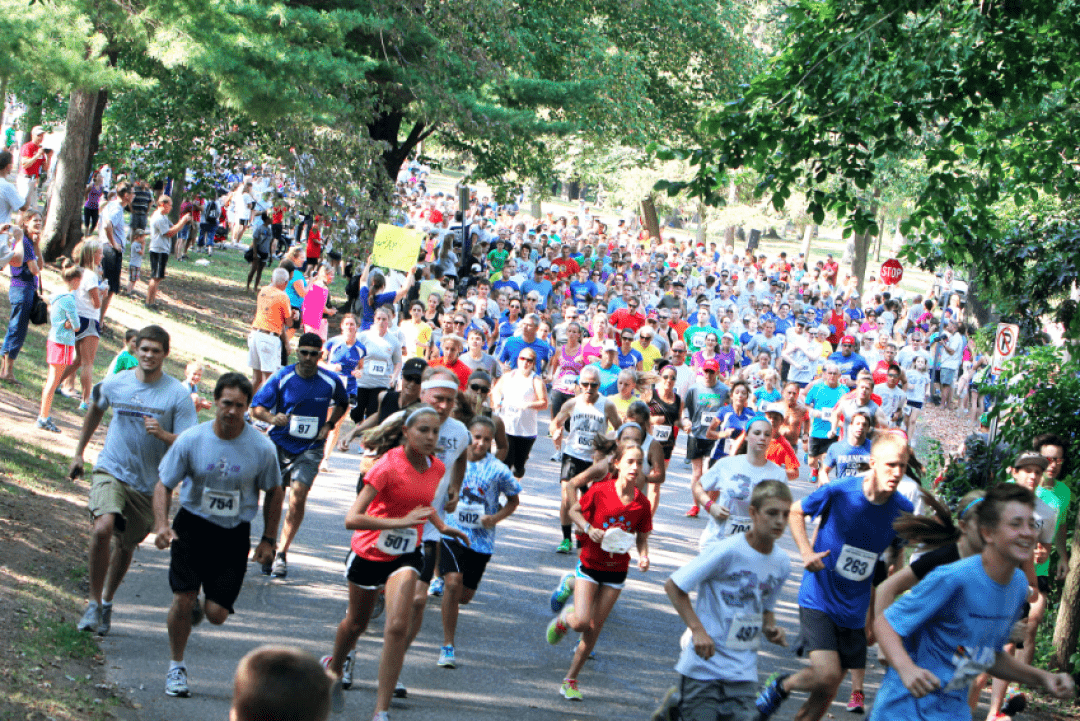Local Groups: City's Red Tape Stalls Special Events
Tom Giffey, photos by Andrea Paulseth |

Organizing a special event in the city of Eau Claire is sometimes unnecessarily complicated because of bureaucratic red tape and an adversarial relationship with city staff, event organizers said during a recent listening session held by city officials.
Lengthy applications, repetitive meetings, and tight restrictions on serving alcohol were all cited as reasons that it’s no walk in the part to schedule a walk in the park. In fact, representatives of several organizations said they’d scheduled events outside the city in part because of such hassles.
“Especially if you’re a new event planner, it looks like a new mountain that might not be worth it to climb.” – Michael Strubel, Visit Eau Claire, on the challenge of planning a special event in the city of Eau Claire
Michael Strubel, director of sales and events for Visit Eau Claire, said his organization had recently met with event organizers who had concerns about how the city operates. “The most common theme out of that meeting is the process is daunting,” he said. Based on his conversations with event organizers elsewhere in Wisconsin, Strubel said arranging a special event is a one-step process is some cities, and applications are sometimes only two or three pages long, compared with 29 pages in Eau Claire. Furthermore, getting approval is a three-step process in Eau Claire, with a thumbs-up needed from the Special Events Committee, the Waterways and Parks Commission, and finally the City Council. In addition, the rules in Eau Claire are particularly restrictive when alcohol is involved: Two additional hearings are held, and alcohol can only be served inside fenced-in areas. Many other cities – including larger ones – don’t require fences and control access to alcohol with wristbands, Strubel explained.
In a subsequent interview, Strubel summed up the process like this: “Especially if you’re a new event planner, it looks like a new mountain that might not be worth it to climb.”
Brian Sandy, marketing and promotions manager for the Eau Claire Press Co., which publishes the Leader-Telegram newspaper, said he’s found it is easier to hold special events in Altoona than in Eau Claire. He said rules for serving alcohol at events his company sponsors – such as the Taste of the Valley – are too restrictive and complicated. “What I am here to say is where is the common sense?” he asked.
Numerous event organizers spoke at the Aug. 26 listening session that was attended by representatives of numerous city agencies, including the Police and Fire departments and the Parks, Recreation, and Forestry Department.
Several event organizers expressed displeasure with a requirement that they pay $90 per hour for police services at events where alcohol is sold, even when police aren’t present. Karen Kraus, director of development for the local branch of Special Olympics Wisconsin, said she’d prefer to pay the fee and actually have officers present or be able to avoid the fee and regulate the event herself.
Kraus agreed that the special event process in Eau Claire is more lengthy and complicated than in other cities, such as Altoona, where the Special Olympics is relocating its annual Polar Plunge. However, she sounded hopeful that policy changes could be made. “I don’t think we’re looking at reinventing the wheel here by any means,” she added.
Ken Van Es, executive director of the Eau Claire YMCA, noted that fees have grown expensive for using city parks and trails for special events, adding that event organizers are sometimes required to pay to rent adjacent pavilions and venues even if they aren’t using them. For example, the YMCA uses the trail in Owen Park for its Kids of Steel Triathlon, and is required to pay for the park’s band shell, even though it isn’t used.
“The (City) Council has to decide whether they want to encourage special events or discourage special events,” said Van Es, a former city parks director. He noted that the profusion of requirements for event coordinators sometimes leads to an adversarial relationship with the city.
After the meeting, city Parks, Recreation, and Forestry Director Phil Fieber said the feedback would be provided to members of the City Council. He said he hopes they consider making changes to city ordinances to make the event planning process simpler. For example, he said, he doesn’t believe all special events need direct approval from the City Council.
Councilwoman Catherine Emmanuelle, who attended the listening session, also expressed hope that procedures could be streamlined. She said she’s heard from some groups that the special event application process is overwhelming. “The cost that we could be looking at is that if we don’t change things, some of the special events might say they don’t want to come back to Eau Claire,” Emmanuelle said in an interview.




















